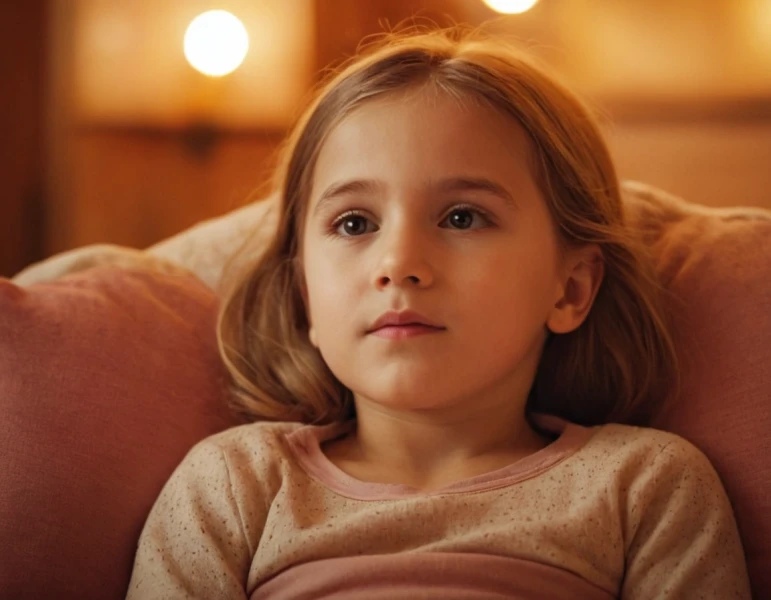This website uses cookies to improve your user experience. We use our own and third-party cookies to improve our services related to your preferences, through the analysis of your browsing habits.If you reject cookies, we cannot ensure the correct functioning of the various features of our website. After accepting, we will not show you this message again. The data processor is Educa University, B.V. You can change your settings or get more information at Cookie Policy
The data controller is Educa University, B.V
Home / FACULTAD DE DOCENCIA Y FORMACIÓN PARA EL PROFESORADO / Relaxation Techniques for Children
Include free content with your subscription
This online course is aimed at all those people who are related to children and have special interest in acquiring knowledge about relaxation techniques.
See more
University degree
125 h
Online
5 ECTS (Créditos)
University Degree in Child Relaxation Techniques with 5 ECTS University Credits.
Not a subscriber yet? At Educa University, we respond nimbly to the educational needs of a digitalised and constantly changing world. We are leaders in the development of educational programmes and AI tools, with partnerships with prestigious universities in Europe, the United States and Latin America.
Subscribe nowDescribe and contextualize different stages of child development.
To analyze different child relaxation techniques.
To know the basic concepts related to relaxation.
To identify problematic attitudes and behaviors in children.
In an increasingly fast-paced world, where information and activities seem endless, it is essential to learn how to manage stress and anxiety, especially in children. The child relaxation techniques are valuable tools that can help children find calm and emotional balance. These techniques are not only beneficial to their overall well-being, but also contribute to an environment more conducive to learning and creativity.

Child relaxation techniques are methods designed to help children release tension, reduce anxiety and improve their concentration. These techniques may include:
Deep breathing: Teaching children to breathe in a controlled manner helps them relax. A simple technique is "four-beat breathing," where they inhale for a count of four, hold their breath for four seconds, exhale for a count of four, and finally hold again.
Visualization: Guide children to imagine a quiet place or situation that makes them feel happy and safe. This technique encourages creativity and allows them to momentarily escape stressful situations.
Yoga and stretching: Incorporating simple yoga postures adapted for children can be very beneficial. These activities not only help release physical tensions, but also improve concentration and coordination.
Meditation: Although it may seem complex, there are very simple and short guided meditations that are perfect for children. These practices promote mindfulness and help children learn to focus their mind.
Reduction of Stress and Anxiety: Children also experience stress and anxiety. Learning to relax can help them manage these emotions more effectively.
Sleep Enhancement: Many relaxation techniques are useful before bedtime, helping children calm down and prepare for a restful rest.
Increased Concentration: By learning to focus on their breathing or a mental image, children develop skills that improve their focus on school and recreational activities.
Fostering Creativity: Visualization and meditation techniques stimulate the imagination, allowing children to explore their creativity in new ways.
Developing Self-Confidence: As children master these techniques, they develop a greater sense of control over their emotions, which strengthens their self-confidence.
Establishing Routines: Introducing relaxation time into the daily routine, whether before school, after activities or before bed, can make a big difference.
Create a Quiet Space: Designate an area at home where children can relax, with elements that encourage calm, such as comfortable cushions, soft lights and soothing music.
Practice Together: Parents and educators can engage in these techniques together with children. This not only reinforces learning, but also creates a stronger emotional bond.
Use Resources: There are numerous resources available, such as meditation apps for children, online videos and books that offer guides and exercises.
Relaxation Games: Integrating games that encourage calmness, such as "statues" where children must remain still and quiet, can be very effective.
Relaxation Stories: Reading stories that incorporate elements of relaxation, such as nature or quiet adventures, can help children unwind and relax.
Stretching Exercises: Organizing short stretching sessions where children can release tension and improve their flexibility is an excellent way to introduce relaxation.
Art Therapy: Providing art materials and encouraging children to express themselves creatively can be very therapeutic. Painting or drawing in a calm environment allows children to process their emotions.
Children's relaxation techniques are essential for children's emotional and physical well-being. By providing them with tools to manage stress, parents and educators not only help them cope with difficult situations, but also teach them skills that will serve them throughout their lives. Implementing these practices on a regular basis can transform everyday life, creating a more harmonious environment conducive to a child's holistic development.
Entre el material entregado en este curso se adjunta un documento llamado Guía del Alumno dónde aparece un horario de tutorías telefónicas y una dirección de e-mail dónde podrá enviar sus consultas, dudas y ejercicios. La metodología a seguir es ir avanzando a lo largo del itinerario de aprendizaje online, que cuenta con una serie de temas y ejercicios. Para su evaluación, el alumno/a deberá completar todos los ejercicios propuestos en el curso. La titulación será remitida al alumno/a por correo una vez se haya comprobado que ha completado el itinerario de aprendizaje satisfactoriamente.
This training prepares you to acquire the knowledge related to children's relaxation, in order to learn different techniques to carry out with children, either at a professional or family level.
This online course is aimed at all those people who are related to children and have special interest in acquiring knowledge about relaxation techniques.
The knowledge acquired in this Relaxation Techniques Course is professionally applicable in the areas of Early Childhood Education, Primary Education, Secondary Education, Social Education and Child Psychology.
Legal Notice • Enrollment Conditions • Privacy Policy • Cookie Policy• Copyright @ 2024 • Educa University
Powered by
